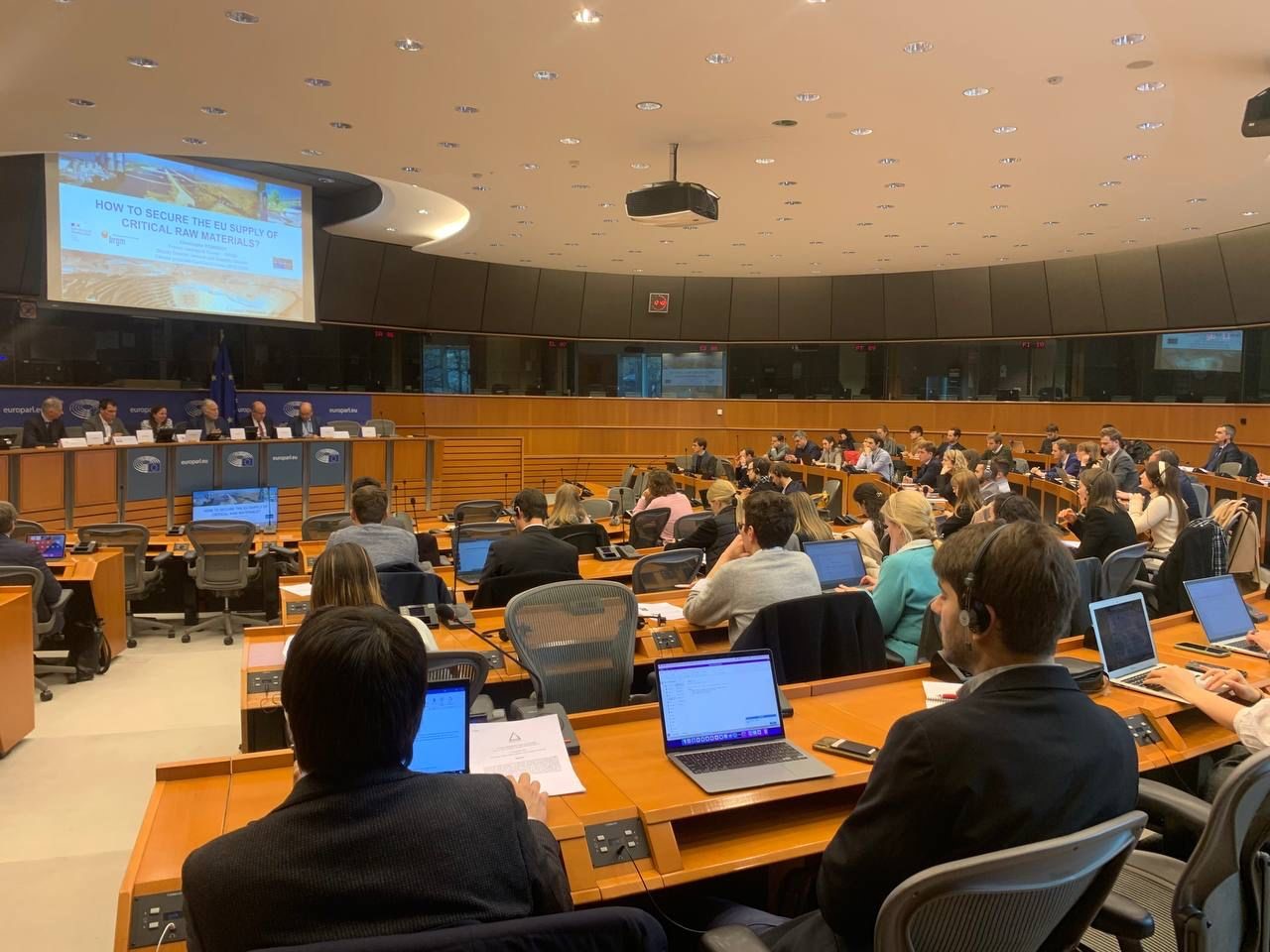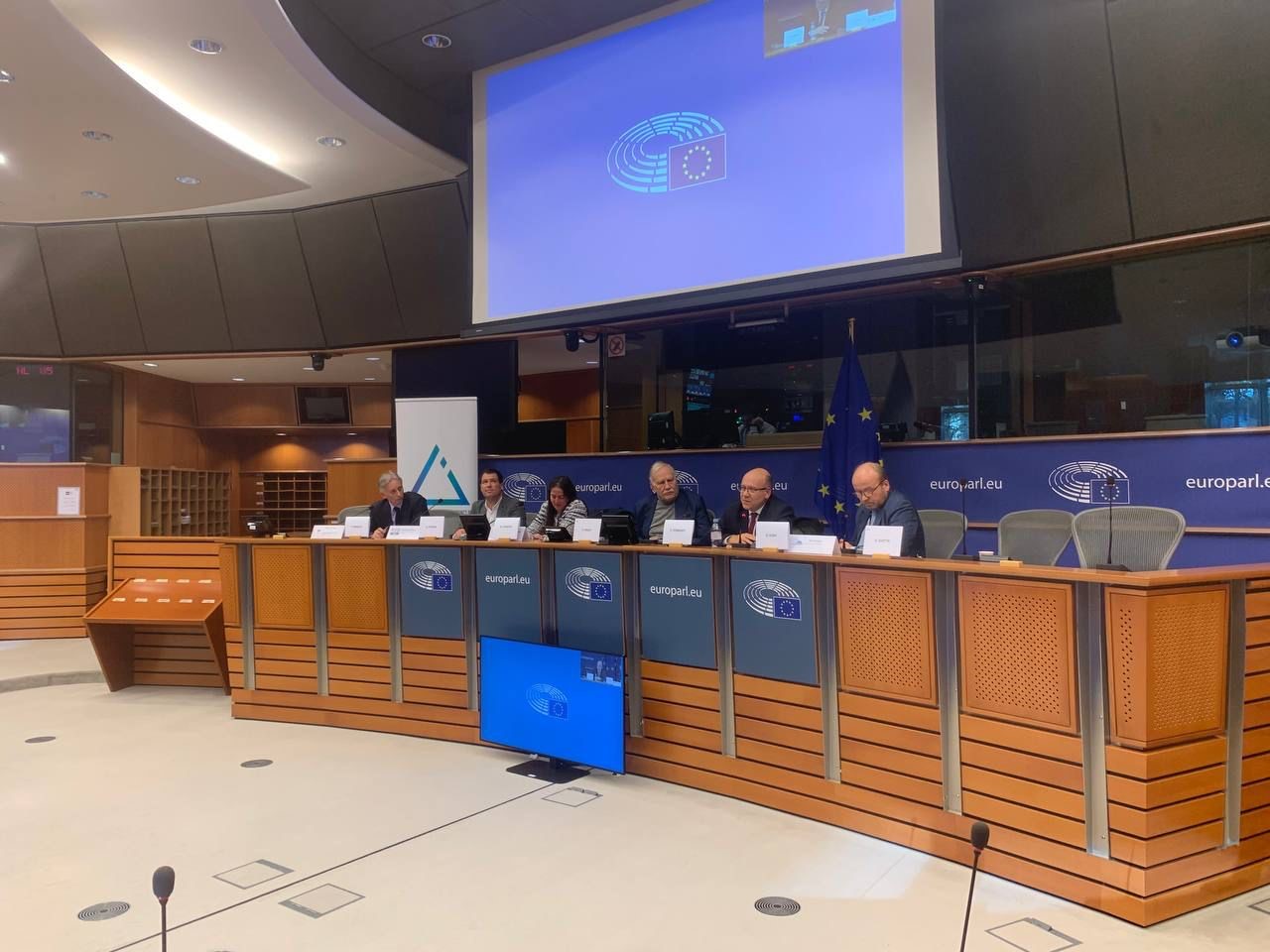Critical metals : the rush to scarcity ? How to secure the EU supply of critical metals ?
On Wednesday 7th of December at the European Parliament, the Sustainable, Long-term investments & Competitive European Industry Intergroup held its conference on “Critical metals: the rush to scarcity? How to secure the EU supply of critical metals?”.
Chaired by MEP and Co-Chair Dominique Riquet the event focused on the need to secure the European supply of critical metals and make the future Critical Raw Material Act “fit for purpose.”

Christophe Poinssot, Deputy director general and Scientific Director of the French Geological Survey (BRGM) drew up an overview of the critical raw material situation in Europe and the world.
He began by explaining how metals have become increasingly important as a result of three major key drivers affecting mineral demand: economic and population growth, energy transition and renewables, and the digital transition. An increase in the quantity and variety of materials and minerals used in our technologies results in a general demand that exceeds the European offer of metals. Since there is a common need for the main transitions (digital and energetic) there is a conflict that will lead to arbitration and trade offs. Mr. Poinssot emphasized on the complexity of the value chain for critical metals. He said: “if we want to secure our supply, we need to master every step of the value chain”According to him, it is likely that we will not find every metal resource in Europe, which is why there is a need to explore elsewhere while adhering to ESG criteria.. He explained how most of the critical raw materials are interlinked: “family of metals”. The deputy director general also questioned the European sovereignty regarding minerals. A loss in sovereignty would lead to a transfer to countries with lower costs and standards of production. Resources being well dispersed around Europe, there is room to develop new activities especially mining.
It is most likely that we will not find every resource of metals in Europe, that is why there is a need to explore elsewhere while respecting the ESG criteria, according to him.
To conclude Mr. Poinssot highlighted 5 points of focus:
- Develop an efficient circular economy and recycling industry
- Preserve mineral intelligence
- Careful resource inventory
- Invest in new projects (mining)
- Responsible critical raw material importation
As a long-term industry, critical materials require stable and clear political support and long-term commitment.
Peter Handley, Head of Unit in charge of Energy Intensive Industry and Raw Material at DG GROW, European Commission outlined the ongoing legislative work in the field of critical metals. The Critical Raw Material Act is due to come out before the end of March 2023, reassured Peter Handley. The future regulation will focus on the fundamentals, where the Commission needs to act. The impact assessment of the future regulation is finalizing and is expected to be published on December 19th 2022. This new regulation should ensure transparency, sustainability and support responsible investment in the field.
Rolf Kuby, Director General of Euromines insisted on the importance of recognizing the general fragility of our value chain in terms of raw materials. To overcome this challenge Europe must diversify and promote fair trade with like-minded partners. Having trade policies and rules is a requirement for third parties. He also stressed the fact that Europe must avoid outsourcing of valuable stock. For critical raw material he asked to facilitate the exploration phase and support for the mining project as well as a complementary harmonized environmental regulation.
Guillaume Pitron, author of « Rare Metals War », highlighted the need for Europe to regain sovereignty. As our dependence increases in a large number of fields: metal, fossil fuels… new economic and environmental challenges arise. “Until we start ensuring the end product, we are dependent on Chinese policies efficiency…”. He gave the example of the US which began to push its energy transition but in the meantime works on sustaining its mining industries. We need to understand that because of the tension between the demand and the offer there might be a risk of export restrictions and tensions.
Dominique Riquet, MEP and Co-Chair of the Intergroup, advocated for “reviewing the ambitions in a realistic way.” The resources are extremely limited and not distributed in an advantageous way for Europeans. The EU regulations that no other third-countries share expose the EU to a risk of a “dead-end” Situation, according to the European deputy.

Contact: Garance Galliaerde, secretariat@investmentindustryintergroup.eu
